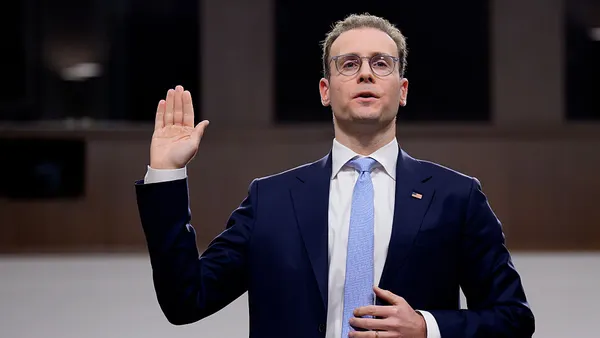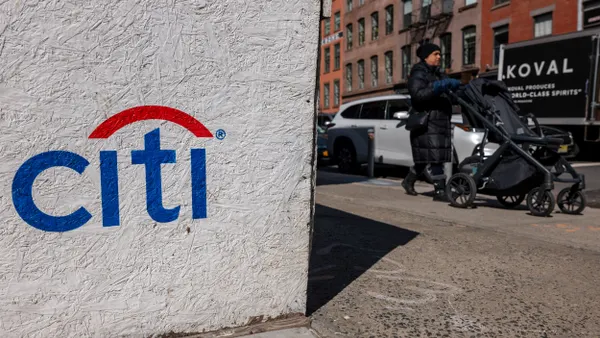Dive Brief:
- Jefferies told employees in a memo Wednesday they should work remotely for the rest of the month if they can, as 40 new COVID-19 cases have been reported within the investment bank thus far this month.
- The bank is also requiring its workers — and anyone who wants to attend an event at one of its offices — to get a booster for their vaccine by Jan. 31, unless they are ineligible, according to the memo seen by Bloomberg and Reuters.
- Jefferies, which called its workers back to the office in October, is re-instituting a mask mandate in its offices regardless of employees’ vaccination status. The bank, which has seen 60% in-office attendance globally in recent weeks, is canceling all social events until Jan. 3. It did not specify in which office or offices the COVID-positive employees worked. About 95% of Jefferies employees are vaccinated, CEO Richard Handler said.
Dive Insight:
The Jefferies memo marks an early blow to in-office work in the omicron variant era of the COVID-19 pandemic.
"Yesterday alone we had 10 additional cases and, as a result of those cases, nearly 50 people will have to be quarantined until they test negative," Handler said in Wednesday's memo. "Our priority now is to best protect every one of you and your families."
For Jefferies, the COVID crisis has been undoubtedly personal. The bank’s CFO, Peg Broadbent, died from complications of COVID-19 in March 2020, the pandemic’s first month.
"We strongly believe we are much closer to the end of this mess than the beginning," Handler said, adding the bank is "beyond eager for all of our people to be back in our offices." Handler urged employees to "be smart, safe, support each other, and continue what we have worked so hard to accomplish thus far into the pandemic."
Wall Street banks have been somewhat divided in their attitude toward office returns. Goldman Sachs CEO David Solomon, as early as February, expressed frustration over the (lack of) speed with which vaccines were rolled out. JPMorgan Chase CEO Jamie Dimon similarly bemoaned workers’ reluctance to give up remote life.
Citi, meanwhile, pioneered a hybrid schedule — yet was still among the first big banks to require all U.S. employees to be vaccinated.
COVID-19’s delta variant, meanwhile, pushed back office-return timelines at Wells Fargo, Truist, U.S. Bank, TD and — yes — Citi. Capital One went so far as to give up predicting an office-return date.
"Those financial institutions and Wall Street firms that believed there will be an automatic return to work and were pushing for that are going to re-examine their current return-to-work status, especially given employees’ concerns," Brian Marks, a lecturer at the University of New Haven who once worked for the Commodity Futures Trading Commission (CFTC), told Reuters.
Jefferies is hardly the only bank to scratch its holiday-season events. JPMorgan last week called off its carols reception in London. Citi will not host holiday parties this year, a source told Reuters. And Wells Fargo said Wednesday it had no firm-wide celebrations planned. Team parties are left to individual managers’ discretion.
In Wednesday’s memo, Handler told employees to quickly communicate compensation decisions this month, thus avoiding "games or drawn-out drama like many of our competitors seem to enjoy."














